Latest News
-
Woman loses life in massive fire, two children seriously injured
-
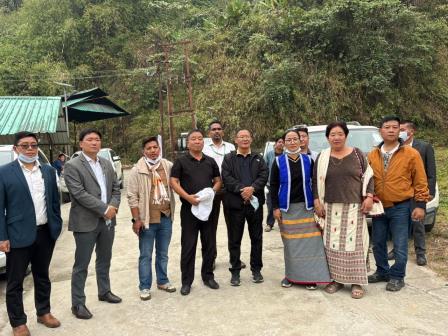 UA Minister inspects burial ground, focuses on maintenance and improvement
UA Minister inspects burial ground, focuses on maintenance and improvement
-
 UA Minister inspects burial ground, focuses on maintenance and improvement
UA Minister inspects burial ground, focuses on maintenance and improvement
-
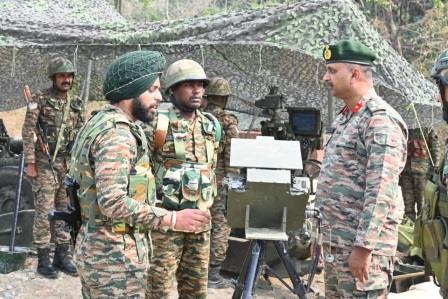 Indian Army & ITBP conduct integrated live fire exercise
Indian Army & ITBP conduct integrated live fire exercise
-
Itanagar to host ‘Just Music’ with Spotify India, indie stars…
-
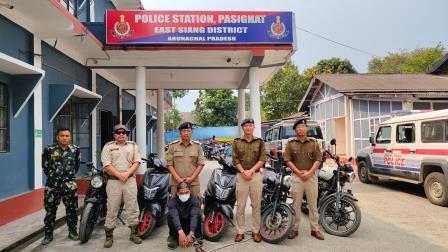 Pasighat Police recovers stolen two-wheelers, accused arrested
Pasighat Police recovers stolen two-wheelers, accused arrested
-
Natung inspects ongoing dev projects, infra
-
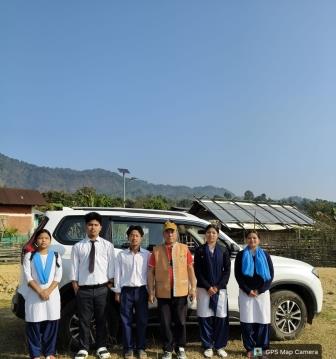 A journey beyond duty: The inspiring story of Bomto Bole
A journey beyond duty: The inspiring story of Bomto Bole
-
Tension mount as woman’s health deteriorate during hunger strike at…
-
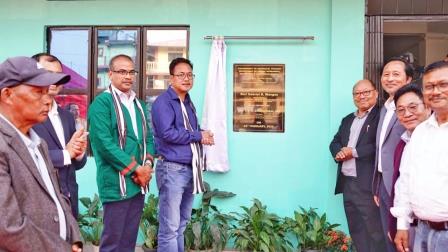 Wangsu inaugurates central vaccine depot and disease investigation lab
Wangsu inaugurates central vaccine depot and disease investigation lab
16th Jun 2022 11:06:PM Editorials
During a meeting on Bio-waste management in West Siang district, the District medical officer informed that segregation of waste materials is not being done properly. Biomedical waste cannot be treated as normal household waste due to its hazardous nature; unfortunately it is!
The mushrooming of hospitals and healthcare facilities in the state especially in the capital complex has no doubt made healthcare accessible to people but it has also increased the production of hospital waste or bio-medical waste(BMW) that are currently being dumped in shallow pits which are later burnt off. This method, as evident, is not without risks as often anatomical wastes gets exposed when stray dogs and pigs dig it out in search of food. Many hospital authorities are not following the rules for proper disposal of the Biomedical Wastes, which needs to be shredded before handing over to the waste collectors.
The Centre had framed the Bio-Medical Waste (Management and Handling) Rules 1998 under the provision of Environment (Protection) Act, 1986 which prescribed the procedures for treatment and disposal of bio-medical waste generated by hospitals, nursing homes, dispensaries and clinics. However, most of the hospitals and nursing homes in Arunachal Pradesh don’t have facilities for disposal of bio-medical wastes, according to a recent report by the Comptroller and Auditor General of India.
The CAG report which was tabled in the state assembly highlighted that in ten government hospitals treatment plants were installed. But they remained non-functional due to lack of trained manpower, technical defects, lack of fund for maintenance besides shortage of power.
Few years back the IMC and Arunachal Pradesh State Pollution Control Board (APSPCB) had raised concern over sanitation workers engaged in garbage collection being hurt by syringe and other hospital wastes.
Every year hundreds of people are injured from improperly discarded sharps like needles, syringes and lancets; in turn such injuries transmit blood borne pathogens such as HIV and Hepatitis B and C; despite such high risk, it’s a pity, health authorities in the state are yet to pay attention to the problem of bio-medical waste.
However, in all this the biggest sufferer is the poor sanitation worker who has the humongous task of keeping the capital complex clean. Exposed to a world of hazardous substances, it is sad to see these workers going about their daily task without any protective gear whatsoever.
The need for a big incinerator cannot be reiterated enough. Garbage management is ineffective without proper disposal of especially bio-medical waste.

Kenter Joya Riba
(Managing Editor)She is a graduate in Science with post graduation in Sociology from University of Pune. She has been in the media industry for nearly a decade. Before turning to print business, she has been associated with radio and television.
Email: kenterjoyaz@easternsentinel.in / editoreasternsentinel@gmail.com
Phone: 0360-2212313

